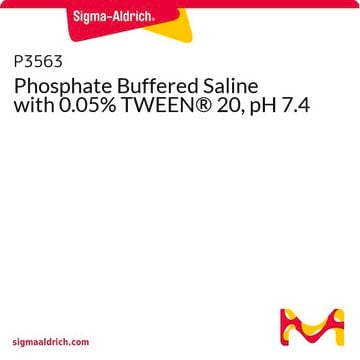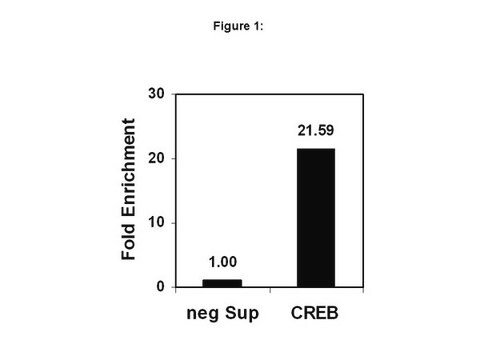MAB979
Anti-Enterovirus 71 Antibody, cross-reacts with Coxsackie A16, clone 422-8D-4C-4D
ascites fluid, clone 422-8D-4C-4D, Chemicon®
Sign Into View Organizational & Contract Pricing
All Photos(3)
About This Item
UNSPSC Code:
12352203
eCl@ss:
32160702
NACRES:
NA.41
Recommended Products
biological source
mouse
Quality Level
antibody form
ascites fluid
clone
422-8D-4C-4D, monoclonal
species reactivity
human
manufacturer/tradename
Chemicon®
technique(s)
immunofluorescence: suitable
isotype
IgG1
shipped in
wet ice
Specificity
Reacts with Enterovirus 71. Neutralizes enterovirus 71 BrCr strain at a titer of less than 1:14.
Immunogen
Epitope: cross-reacts with Coxsackie A16
Application
Indirect immunofluorescence at 1:1,000.
(Also cross-reacts with Coxsackie A16).
Optimal working dilutions must be determined by end user.
(Also cross-reacts with Coxsackie A16).
Optimal working dilutions must be determined by end user.
Research Category
Infectious Diseases
Infectious Diseases
Research Sub Category
Infectious Diseases - Viral
Infectious Diseases - Viral
This Anti-Enterovirus 71 Antibody, cross-reacts with Coxsackie A16, clone 422-8D-4C-4D is validated for use in IF for the detection of Enterovirus 71.
Physical form
Ascites fluid containing no preservatives.
Unpurified
Storage and Stability
Maintain for 1 year at -20°C from date of shipment. Aliquot to avoid repeated freezing and thawing. For maximum recovery of product, centrifuge the original vial after thawing and prior to removing the cap.
Analysis Note
Control
Enterovirus Control Slides, Catalogue Number 5066
Enterovirus Control Slides, Catalogue Number 5066
Other Notes
Concentration: Please refer to the Certificate of Analysis for the lot-specific concentration.
Legal Information
CHEMICON is a registered trademark of Merck KGaA, Darmstadt, Germany
Disclaimer
Unless otherwise stated in our catalog or other company documentation accompanying the product(s), our products are intended for research use only and are not to be used for any other purpose, which includes but is not limited to, unauthorized commercial uses, in vitro diagnostic uses, ex vivo or in vivo therapeutic uses or any type of consumption or application to humans or animals.
Storage Class Code
10 - Combustible liquids
WGK
WGK 1
Flash Point(F)
Not applicable
Flash Point(C)
Not applicable
Certificates of Analysis (COA)
Search for Certificates of Analysis (COA) by entering the products Lot/Batch Number. Lot and Batch Numbers can be found on a product’s label following the words ‘Lot’ or ‘Batch’.
Already Own This Product?
Find documentation for the products that you have recently purchased in the Document Library.
Purification and characterization of enterovirus 71 viral particles produced from vero cells grown in a serum-free microcarrier bioreactor system.
Liu, CC; Guo, MS; Lin, FH; Hsiao, KN; Chang, KH; Chou, AH; Wang, YC; Chen, YC; Yang, CS; Chong, PC
Testing null
Programmed cell death of the megagametophyte during post-germinative growth of white spruce (Picea glauca) seeds is regulated by reactive oxygen species and the ubiquitin-mediated proteolytic system.
He X, Kermode AR
Plant & Cell Physiology null
Immunological and biochemical characterization of coxsackie virus A16 viral particles.
Chong, P; Guo, MS; Lin, FH; Hsiao, KN; Weng, SY; Chou, AH; Wang, JR; Hsieh, SY; Su, IJ; Liu, CC
Testing null
Rei-Lin Kuo et al.
PloS one, 8(5), e63431-e63431 (2013-05-08)
Induction of type-I interferons (IFNs), IFN-α/β, is crucial to innate immunity against RNA virus infection. Cytoplasmic retinoic acid-inducible gene I (RIG-I)-like receptors, including RIG-I and melanoma differentiation-associated gene 5 (MDA5), are critical pathogen sensors for activation of type-I IFN expression
Kan Xing Wu et al.
Nature communications, 7, 13150-13150 (2016-10-18)
Enterovirus 71 (EV71) is a neurotropic enterovirus without antivirals or vaccine, and its host-pathogen interactions remain poorly understood. Here we use a human genome-wide RNAi screen to identify 256 host factors involved in EV71 replication in human rhabdomyosarcoma cells. Enrichment
Our team of scientists has experience in all areas of research including Life Science, Material Science, Chemical Synthesis, Chromatography, Analytical and many others.
Contact Technical Service







